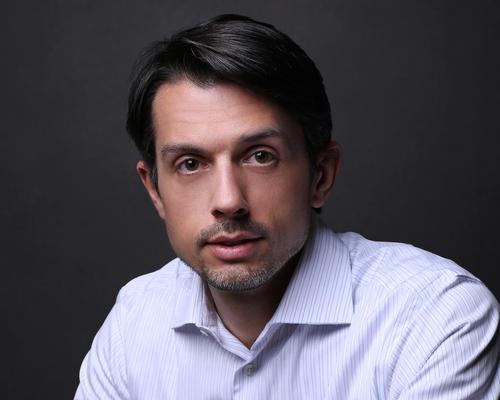07 May 2020
Hirsch Bedner's David T'Kint reassesses the future of design
BY Liz Terry

Hirsch Bedner Associates (HBA) are one of the foremost names in hotel and hospitality design, but as partner David T'Kint told CLAD's Stu Robarts, the COVID-19 pandemic has forced them to reassess what the future of design looks like.
T'Kint moved to Dubai with his family in 2014 to develop HBA's small office there into a fully-fledged design office.
With 50 designers and five of the 10 HBA brands now operating from the location, the intention is for T'Kint's role to be refocused onto Europe, the Middle East and Africa. When I spoke to him, though, his horizons were looking much less international.
"I'm stuck in Dubai," he explained. "It's my third week in a row, which has never happened."
Closed borders
The closure of the UAE's borders at the end of March and the subsequent stemming of travel to and from that most global of cities, Dubai, is a powerful lens through which to view the impact of the pandemic on the travel and tourism sectors.
Not only did it offer an image of what was happening at the sharp end of the fall-out, but it brought into focus the question of what impact there would be in the long-term.
"If we'd have spoken a month ago, my response would have been different," said T'Kint. "I think, unfortunately, this is going to affect us as a company, the entire hospitality industry and way beyond any of its businesses worldwide."
Sustainability
Beyond the obvious economic impact on businesses and the curtailment of global travel and tourism for what will be at least the short- to mid-term, T'Kint believes sustainability will be one of the biggest trends to come out of the pandemic within hospitality – a sector that he recognises has not traditionally led the way in that area.
"A lot of the non-hospitality industry is focussed on the function of what the building or development is for," he said. "Whereas, in hospitality, the function is to either accommodate guests or entertain guests but, in order to be able to do that, you have to create an experience.
"That experience very often goes in conflict with sustainability, because you need that feature wall or that feature experience that is not produced locally and you need to import from somewhere."
Resilience
Not only will travel restrictions only be lifted gradually and travel on the whole remain subdued for some time, but T'Kint suggested that businesses within the hospitality industry will begin to pursue economic and supply chain resilience by sourcing goods more locally.
"It's a very common thing for a hotel, say for example here in Dubai where very little gets produced, to have your wood from Indonesia, some of your furniture from Turkey, some of the fabrics from Italy," he explained.
"Materials come from all over the place and that contributes to world pollution at the same time as making connections that open the doors to pandemics such as we have now. I think countries are going to protect themselves in a way like never before," he said.
"!I think a lot of travel in the years to come is going to become more and more local, as opposed to long distance. And I think, because of that, sustainability will see more and more requests from operators who want to use it as a marketing tool and from developers because of the financial side of it.
"Say for example a hotel in London," T'Kint elaborated. "Instead of shipping things from all over the world, they're going to ask us to go and find your wood flooring from somewhere in Scotland, go and find your fabrics from one of the producers in London."
Close Window